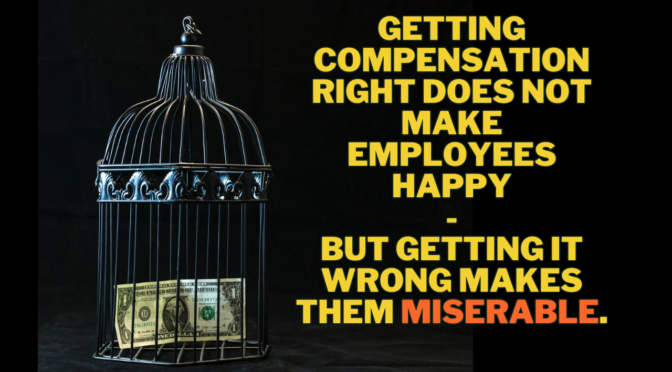
A couple of weeks ago I was writing my regular op-ed piece on leadership for a major Danish newspaper and I was plumb out if ideas. It’s funny how your creativity can get stuck when you’re looking at an empty word document and a looming deadline :o)
So I asked for ideas in my twitter feed (follow me on twitter) and got tons of input, of which the email I got from Joe D. Calhoun, Director of Business Development at Paraco Gas Corporation was by far the coolest.
Here is Joe’s email in full – read and enjoy, it’s excellent!
When it comes to leadership … we have all been told leaders are born, not made, that leadership is about ego, nice guys finish last. BUNK …. Leadership is all about happiness. Seeking a means to find the greatest good for the greatest number of people. If you’re happy and your know it … share it … find a way to lead others to it … nice guys DO finish first.
Leadership is also NOT about a title or a job or position. I have had jobs that were very low on the totem pole of life and yet I was looked up to for my leadership of taking on a task and seeing it through to completion … all the while doing it with my “excessively happy” style. Volunteerism is leadership of the happiest sort. A labor of love … working for free (and I have been doing a lot of that lately as I have been un-employed) and supporting a cause – sometimes one that is not sexy and glamorous. This year I helped an organization plan, solicit donations, decorate, facilitate live and silent auctions, all to raise $20,000 for the treatment of drug and alcohol additions. I loved it … Leadership is love.
Leadership takes energy … do you know any energetic people that are not happy? Energy to face the challenges of anything with a smile on your face and find new ways of solving problems.
Ask most leaders … they will tell you … they feel “called” to lead. Every calling has an innermost happiness associated with it. I recently accepted a job offer … I knew 30 minutes into the interview that I would take the job … it felt right in my gut. I felt like I was supposed to be doing this. This sense of calling came while discussing the opportunity and the company. I had prepared three pages of notes for the interview … questions … things I thought I wanted to discuss. Instead we talked about the industry … laughed and I read the plan they had for expansion of the department. I was the right peg for the hole … I knew it … they knew it. Leadership is having a calling and answering it … and that feeling in your gut is ultimately tied to “how happy will this make me?”
That’s a nice little manifesto for leadership right there! Click here for more cool thoughts from Joe.
Your take
What do you think – are leaders born or made? Does your boss have your happiness in mind? Is there any room for love in your workplace?












